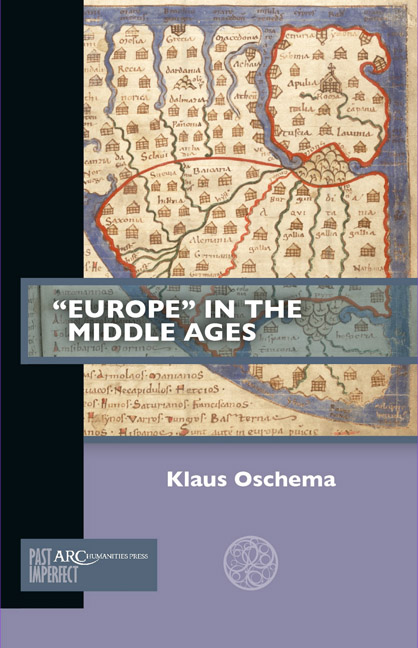Book contents
- Frontmatter
- Contents
- List of Illustrations
- Preface and Acknowledgements
- Chapter 1 Why Europe? A Concept Crossing History and Politics
- Chapter 2 Foundations in Antiquity
- Chapter 3 Moments of Transformation— Europe in the Early Middle Ages
- Chapter 4 Europe, Christianity, or Something Completely Different? Impressions from the Central Middle Ages
- Chapter 5 Our Last Hope? Entangling Europe and Christianity in the Late Middle Ages
- Chapter 6 Perspectives from Outside? Byzantium and the Arabic World
- Conclusion No Roadmap for Europe— History, Politics, and the Way to Global History
- Further Reading
Preface and Acknowledgements
Published online by Cambridge University Press: 13 February 2024
- Frontmatter
- Contents
- List of Illustrations
- Preface and Acknowledgements
- Chapter 1 Why Europe? A Concept Crossing History and Politics
- Chapter 2 Foundations in Antiquity
- Chapter 3 Moments of Transformation— Europe in the Early Middle Ages
- Chapter 4 Europe, Christianity, or Something Completely Different? Impressions from the Central Middle Ages
- Chapter 5 Our Last Hope? Entangling Europe and Christianity in the Late Middle Ages
- Chapter 6 Perspectives from Outside? Byzantium and the Arabic World
- Conclusion No Roadmap for Europe— History, Politics, and the Way to Global History
- Further Reading
Summary
For a medievalist who lives and works in the early twenty-first century, writing about Europe is a highly ambivalent undertaking. Some readers might be tempted to argue that the topic hardly merits our attention, since they consider the medieval evidence too sparse or too inconclusive. Others might think that the choice of subject constitutes per se an unwelcome relapse into Eurocentric tendencies. In any case, it seems clear that the subject inevitably evokes current political debates. Whether one subscribes to the conviction that Europe merits becoming the framework for an increasingly interconnected and profound political and cultural community or, to the contrary, clings to the, historically speaking, relatively new belief that people are best organized in the form of nation-states, talking about Europe has political overtones.
Having studied the use of the notion of Europe for quite some time now, I am very conscious about these effects. It might thus be helpful to clarify my own position: Born and raised in late twentieth-century Germany, I was seventeen years old when the Berlin wall fell. I grew up to be deeply convinced that the European Union (EU) constitutes a vital means of overcoming the numerous problems that the nation-state entails—and I still stand by these convictions. As an historian, however, I am also convinced that political questions and problems cannot be solved by looking backwards: history does not furnish ready-made answers. What it can do, is provide alternative perspectives and information that helps us to better understand our problems in the first place. What we choose to do remains our own responsibility.
In this sense, I would like to stress that the material and the interpretations I present in this little book should neither be read as an affirmation of current EU-policies—nor as their rejection. My work as an historian focuses on analyzing and understanding how people used the notion of Europe in the medieval past and which ideas they connected with that term. I can see no convincing argument that would force us to accept that the phenomena we can see here determine or justify any specific modern interpretation of “Europe”.
- Type
- Chapter
- Information
- 'Europe' in the Middle Ages , pp. 1 - 2Publisher: Amsterdam University PressPrint publication year: 2023

